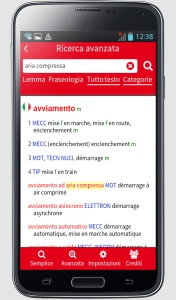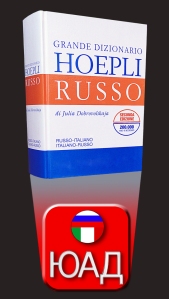An increasing number of users prefer using online dictionaries than traditional printed versions. This figure is confirmed by the continuous decrease in the sales of these works in bookstores.
On the other hand, it is understandable that in the face of an expense that often exceeds 100 euros, many prefer to use the online or electronic versions, which are often free or available at much lower prices. However, putting aside for a moment the economic aspect, no wonder that the introduction of electronic and online dictionaries offers a true alternative to the traditional printed offer. Let’s see some pros and cons that may help to clarify tihis development.
Reference
 In a printed dictionary, the search for a lemma requires a certain mental and physical effort. You have to flip through the pages to find the correct section in alphabetical order, then you must scroll through the items until you find the one you want. This reading work can be tedious and time consuming, but often helps you to also find other terms in the context, making easy to learn new words, and helps you to keep your mind working, similar to “do mental arithmetic and not with the calculator”.
In a printed dictionary, the search for a lemma requires a certain mental and physical effort. You have to flip through the pages to find the correct section in alphabetical order, then you must scroll through the items until you find the one you want. This reading work can be tedious and time consuming, but often helps you to also find other terms in the context, making easy to learn new words, and helps you to keep your mind working, similar to “do mental arithmetic and not with the calculator”.
Searching an electronic dictionary is much quicker, often you can just type a few characters to go directly to the desired entry. You can also do full search text for phrases or idioms to find all matching entries. This is a very useful option for those who travel abroad and want to find local idioms leveraging the phraseology.
Convenience
A printed dictionary does not require electricity or an Internet connection, and it does not crash due to software or hardware problems. Moreover, it is useful in many circumstances, for example, where specific regulations prohibit the use of electronic devices, in locations without Internet coverage, on planes that prohibit the use of electronic devices, while conducting tests, etc.
By contrast, an electronic dictionary can be brought anywhere, on a PC or a smartphone, without the weight and bulk of a volume of thousands of pages. Not only, the amount of information that it can provide is absolutely greater than that of a printed dictionary.
Cost
The problem of the cost has certainly contributed to the significant decrease in sales of the traditional printed volumes. A good dictionary can still cost more than 100 euros, although there are often pocket versions available at a lower cost.
In the electronic world, there is an extremely wide range of free or cheap dictionaries. Just connect and you can quickly download a dictionary in a few seconds to find what you’re searching for, not to mention the continuous availability of multilingual dictionaries online.
Updates
The traditional printed versions were updated with new editions published after many years, often just before the exhaustion of stocks.
An online dictionary can be updated in any moment, both in terms of software and content. The wide spread of social media helped to increase the interaction with the users, so they can contribute to the development of the content with comments and suggestions, or by creating specialized or custom dictionaries (unfortunately, not always with satisfactory results).
Quality
All the best printed dictionaries were created by experienced teams of linguists through a long and accurate editorial work. Important authors (and publishers) have helped to create works recognized worldwide for their quality. This is confirmed by the fact that dictionaries are often known by the name of the author (some examples: “Zingarelli”, “Gabrielli” or “the Devoto Oli”) which immediately denotes the content (Italian rather than English Dictionary) and consequently the reliability of the content.
In the case of electronic and online dictionaries, it is often not clear who is the author, who chose and edited the entries and what sources were used. Much of the free offers is made with the sole purpose to get the largest possible number of users to whom pouring out banner ads. Even the social media impact, mentioned above, and the development of online communities contribute to a greater confusion: the higher interaction with users can help and accelerate the content creation, but often this is not subject to adequate quality control procedures.
Fortunately, all the historically printed material accumulated is not wasted and the same versions of the dictionaries that are on paper are now being increasingly transformed into reference tools available on the Web or in the form of applications for the various operating system platforms. These proposals often have a cost, which, however, is generally lower than the corresponding printed version, and is certainly compensated by the quality of the product.
An example of an online offer is the one proposed by the Italian eLexico.com website, where you can find the leading dictionaries published in Italy. A subscription allows access at any time to the desired dictionary with the possibility to also download an offline version.
Another interesting initiative comes from our collaboration with Edigeo, who is publishing many of the best known Italian dictionaries and encyclopedias (check out the catalog) in the form of app for Android and iOS mobile devices, and PCs and smartphones using Windows 10. The apps are available in major online store and offer an interesting solution especially for those who make intensive and professional use of these reference tools (translators, students, travelers, etc.).

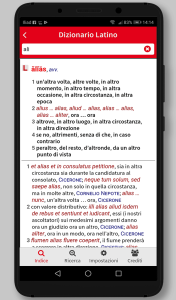
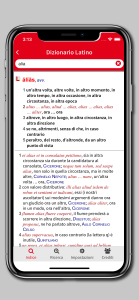








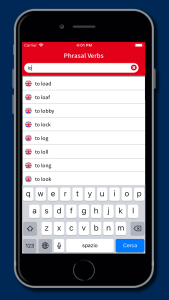





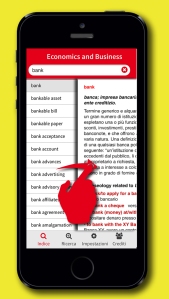


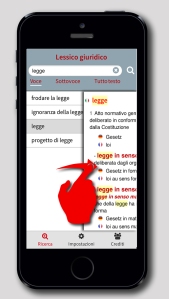

 In a printed dictionary, the search for a lemma requires a certain mental and physical effort. You have to flip through the pages to find the correct section in alphabetical order, then you must scroll through the items until you find the one you want. This reading work can be tedious and time consuming, but often helps you to also find other terms in the context, making easy to learn new words, and helps you to keep your mind working, similar to “do mental arithmetic and not with the calculator”.
In a printed dictionary, the search for a lemma requires a certain mental and physical effort. You have to flip through the pages to find the correct section in alphabetical order, then you must scroll through the items until you find the one you want. This reading work can be tedious and time consuming, but often helps you to also find other terms in the context, making easy to learn new words, and helps you to keep your mind working, similar to “do mental arithmetic and not with the calculator”.


